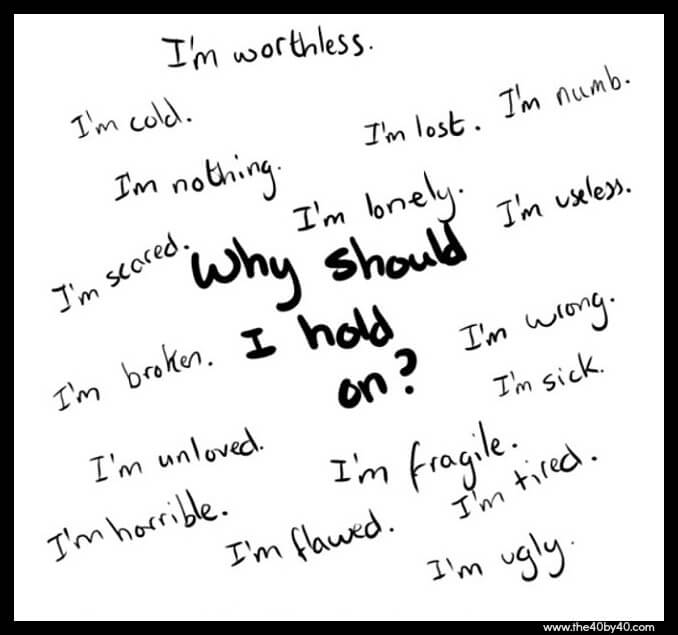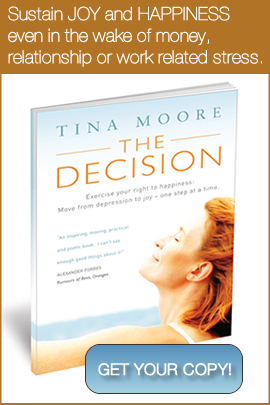After having very open conversations over the holidays with some young adults (late teens, early twenties) it was clear I needed to post a blog listing some of the signs or symptoms of DEPRESSION.
I ask that you pass this blog along because it may help someone realize they are not being ‘weak’, ‘lazy’ and they just need to ‘suck it up’ but rather they are struggling with a very real medical condition that can be TREATED.
According to the Mayo Clinic depression is characterized by several of the following signs or symptoms:
1. PERSISTENT SADNESS: Feeling down, sad or empty. You may cry all the time or report feeling numb.
2. IRRITABILITY: Easily irritated and get upset over things that never used to bother you.
3. FEELINGS OF ANXIETY: You may be unusually nervous, worried or preoccupied with minor concerns. You may feel restless or experience upset stomach or butterflies.
4. LOSS OF INTEREST OR PLEASURE IN LIFE: Losing the ability to find pleasure in people, hobbies or activities you previously found enjoyable.
5. NEGLECT OF PERSONAL RESPONSIBILITIES OR CARE: You may forget to pay your bills, fall behind at your job/school work or pay less attention to how you present yourself.
6. CHANGE IN EATING HABITS: Loss of appetite and losing weight without trying or you may overeat and gain weight.
7. CHANGE IN SLEEPING PATTERNS: Trouble falling asleep at night, awaken frequently or wake up early and not be able to get back to sleep. You may also sleep too much and spend most of the day in bed.
8. FATIGUE OR LOSS OF ENERGY: Low energy and feel tired all the time.
9. DECREASED CONCENTRATION, ATTENTION AND MEMORY: Trouble concentrating and keeping your mind focused on tasks at work, school or home. Making decisions, even simple ones become difficult. You forget things easily.
10. FEELINGS OF HELPLESSNESS: You may feel as if you’re no longer in control of your life. You may become easily overwhelmed by stress and more dependent upon other people, even for simple tasks.
11. FEELINGS OF HOPELESSNESS: Difficulty seeing a bright and positive future and have a sense that things will never get better. Reassurance from others doesn’t help. Motivating yourself becomes impossible and you wonder if life is worth living.
12. FEELINGS OF WORTHLESSNESS OR GUILT: You may begin to feel as if you aren’t good enough, causing you to withdraw from others. You may feel guilty about things you normally wouldn’t think twice about.
13. CONTINUOUS NEGATIVE THINKING: You may become pessimistic, have low self-esteem and not believe that things will get better. Phrases such as “I’m not good enough”, “I’m not smart enough” or “What’s the point?” may become normal phrases that you use.
14. PHYSICAL SYMPTOMS: More headaches, suffer with chronic pain, digestive disorders or constant fatigue.
15. INCREASED ALCOHOL OR DRUG USE: You may try to seek relief from your depressive symptoms with alcohol or drugs. Because these substances affect brain function, they will make depression worse.
16. THOUGHTS OF DEATH OR SUICIDE: You may wish you were dead and have thoughts such as, “If I could just fall asleep and not wake up, my family would be better off.” Or you may experience actual thoughts of killing yourself.
If some of those signs are currently affecting your life, you can take a test to further investigate whether you may be suffering with depression or anxiety at www.mindcheck.ca
IF YOU ARE HAVING THOUGHTS OF DEATH OR SUICIDE, SEE YOUR DOCTOR IMMEDIATELY.
Other avenues of support would be psychiatrist, psychologist, counselor or local community health organization. Mindcheck also lists great RESOURCES.
Not everyone understands depression so if you have already spoken to a friend or family member and didn’t receive the support you were looking for, do not stop there. It’s important to realize you are NOT weak or lazy and it isn’t about ‘sucking it up’.
DEPRESSION IS A MEDICAL CONDITION NOT A CHARACTER FLAW.
Ultimately if you are noticing the quality of your life declining, please get help. You do not have to suffer.
With compassion and love,
Tina
PS. Information listed was taken from the book “Mayo Clinic on Depression”

